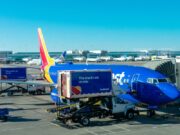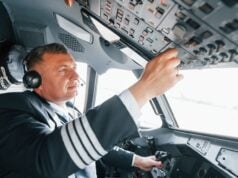Data Mining the Operation, Part 3

Picking up where we left off last month in our review of voluntary safety reporting programs, we are continuing this month with Flight Operations Quality Assurance (FOQA), colloquially referred to as “Foe-Qwah” found in FAA AC120-90.
Last month’s article described ASAP as a voluntary program, meaning there is no requirement for an individual to participate. However, in order for ASAP to be a safety reporting conduit to begin with, the employee group (usually represented by a union) signs a letter of agreement with their airline and the FAA, authorizing the program at the carrier before it is made available and data is collected. Similarly, FOQA is also a voluntary program in that it is also an optional, three-party agreement made between the FAA, the airline, and employee groups (through their unions) to collect and utilize digitally supplied data for safety analysis. Much like ASAP, a three-party FOQA agreement provides rules for the recording and appropriate use of data, including key provisions stipulating that collected data is confidential and is not used for targeting an individual or crew.
This is especially important with FOQA data because it is a digital data-collection program, where information is more or less streamed live to the company (or at least collected and downloaded into a database for review) in order to look for operational threats and trends across the entire system. Because dozens of data parameters from environmental conditions to aircraft speed, altitude, and configuration are flowing automatically to company servers, benefits as well as the potential for abuse exists. Therefore, and in accordance with standard industry agreements, should any data collected require investigation (e.g., an unstabilized approach), FOQA Gatekeepers (union-designated representatives of the program) are the only individuals authorized to conduct confidential interviews with the respective crew. Otherwise, the collected data itself remains “de-identified” – meaning crew names, flight numbers, flight dates, etc. are removed from the data to avoid any potential for abuse and bias. Only designated gatekeepers may access crew information and make contact for further operational details, if necessary, in order to clarify data points for a given flight.
FOQA analysis helps to improve flight safety and increase overall operational efficiency by monitoring for exceedances and data mining for negative trends. Exceedances are digitally pre-programmed operational triggers (e.g., aircraft limitations or established operational parameters) that occur during a flight. For example, the maximum speed below 10,000 feet is 250 KIAS; if exceeded, the flight data is coded as such. If a trend across the operation begins to emerge with this exceedance, analysts working with union gatekeepers may start looking at where and why this is occurring and develop solutions for avoidance and improvement. Examples of other exceedances include high rates of descent, over-banking in a circle-to-land, not having the aircraft correctly configured at the appropriate time, high rates of speed on landing and touching down outside the touchdown zone, excessive fuel burn or brake usage, or issues with engine health such as running hot or excessive vibration. There are literally dozens of factors recorded by FOQA programs throughout the industry and subsequently analyzed by safety personnel to improve organizational safety, effectiveness, and efficiency.
The last in our voluntary safety-reporting-programs list is the Line Operations Safety Audit (LOSA) that we will cover in next month’s article on data mining for safer operations.






















































































































